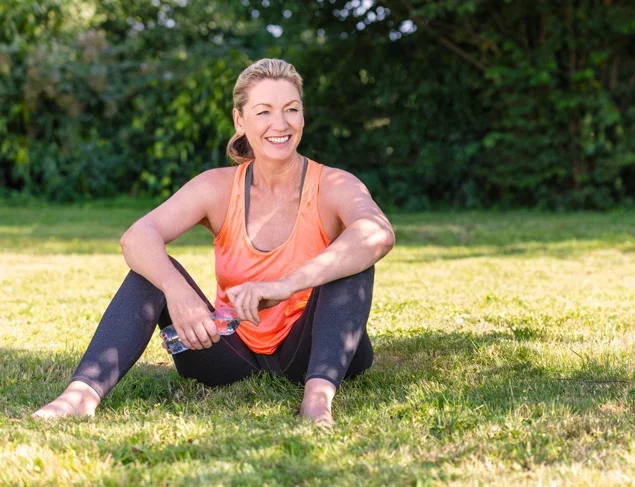Perimenopause occurs before menopause, where your period might become irregular and can last for years before your period ceases. Menopause is when you haven’t had a menstrual cycle for a year or more.
The oestrogen and progesterone hormone levels start to fluctuate and are decreasing.
Women's health
Women's health

Menopause - the facts women need to know
Menopause can remain a bit of a mystery and prone to misinformation. So let’s dive in and find out what the real deal is when it comes to menopause.
Now is the time to start thinking about what to add to your diet. Diet will not cure all of the symptoms you may face, such as hot flushes, mood changes and night sweats but there are important nutrients you should concentrate on getting enough of.
It certainly is not a time to deprive! Your body needs plenty of nutrients- maybe more so than ever. A diet that is nutrient rich or nutrient-dense as it is often referred to, is the aim.
Here are 4 of the best to include.
1. Calcium
As our hormones reduce so does the ability of our body to keep calcium in our bones as well as it used to. This can make our bones weaker and fracture more easily- increasing the risk of osteoporosis.
2. Vitamin D
For the same reason we need calcium we need vitamin D. It helps keep our bones strong. It also seems to have many other important jobs involved with our muscle function, mood and our immune system.
Sunshine is our best source, you can even pop your mushrooms on the window sill for around 15 minutes and the UV will form vitamin D in the mushroom! Eggs and oily fish also have some vitamin D. Maybe sardines or salmon with sauteed mushrooms for dinner?
Science wants you to charge your mushrooms
Buckle up, we’re going to tell you a little story about mushrooms that may be hard to believe.
3. Fibre
Before menopause women are protected somewhat from heart disease relative to men due to our sex hormones. Since they reduce with menopause we lose that protection and we can see a progressive increase in LDL cholesterol which can contribute to poor heart health.
Certain types of fibre can help keep cholesterol in check. Particularly the kind called soluble fibre, found in oats, barley, legumes, apples and pears.
Fibre that is fermented in the gut can help with good gut bacteria. These can influence the hormones that affect our mood, which is particularly useful during perimenopause and menopause when women can experience feelings of low mood.
Look after your garden of gut bacteria. Having a big variety of plant foods will usually do the trick- seeds, nuts, fruit, vegetables, wholegrain cereals and legumes.
4. Protein
This is the time to maintain our muscle mass so we can keep active and have active ageing. After the age of around 30, our muscle mass starts to decline.
We know that having enough total protein and spreading protein foods out over the day is good at helping keep our muscle mass. Along with keeping active of course- a few squats while watching TV or brushing your teeth maybe!
Protein for women: what are the best sources?
Are your farts a bit smelly? You might be eating too much protein. Learn what you could change to reduce this pongy problem.
At breakfast when protein can be low, add in some natural yoghurt, have a nut spread, hummus or cheese on your toast, and cook up some baked beans or an egg.
For snacks grab a handful of nuts with your fruit or even grab a glass of milk or soy.
Focus on all the great stuff to eat, this won't leave much room for the foods that are less helpful or even detrimental to our health i.e. high sugar, high saturated fat, low nutrient foods and alcohol).
Along with nourishing your body with a range of foods, being active can help with this stage of life too. These tips might help make the transition a little easier.
Reviewed by the healthyife Advisory Board August 2022




